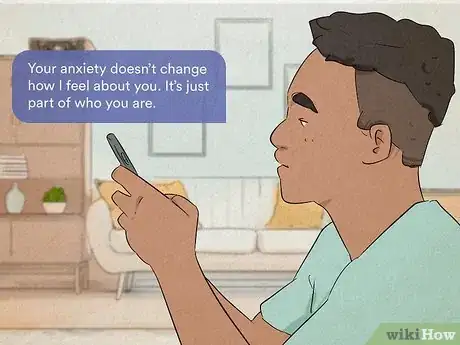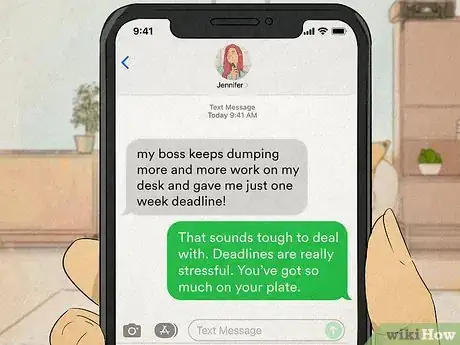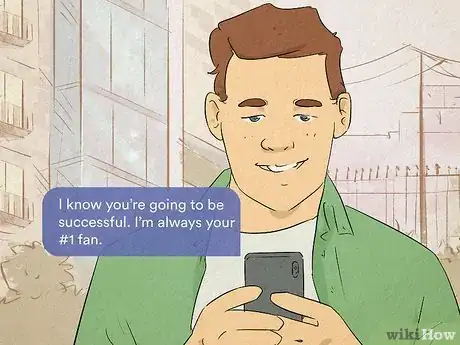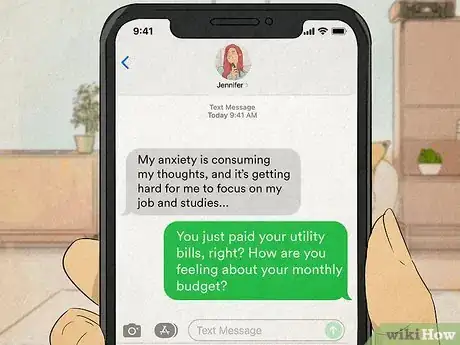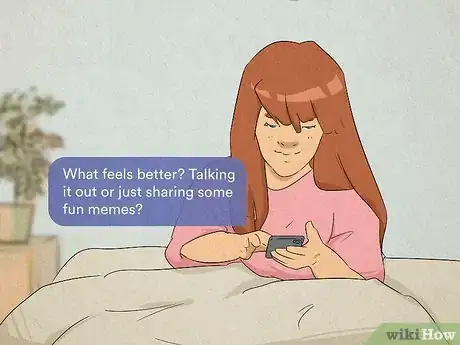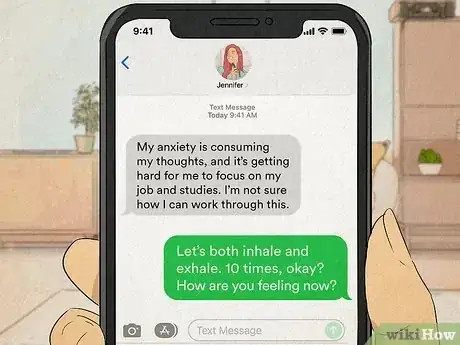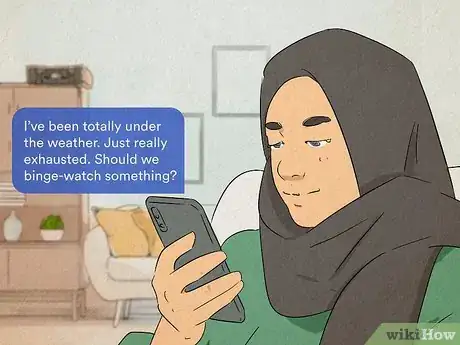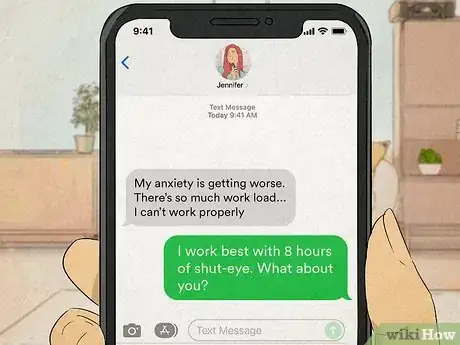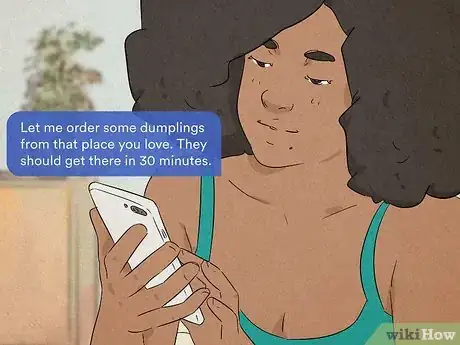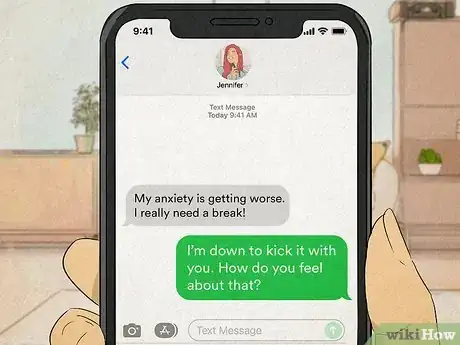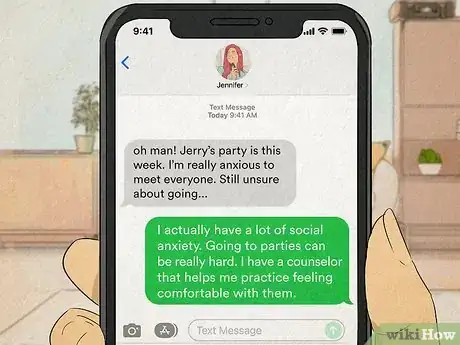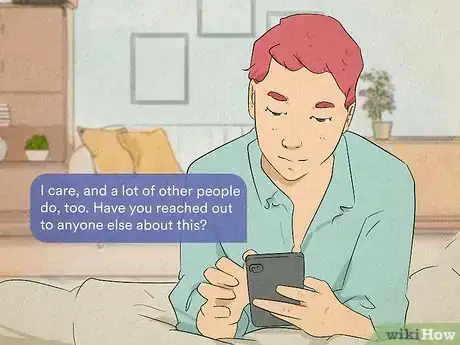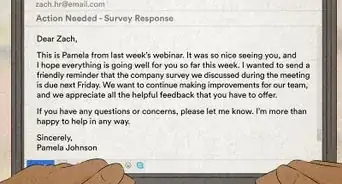This article was co-authored by Jessica George, MA, CHt and by wikiHow staff writer, Madeleine Flamiano. Jessica George is a Marriage and Family Therapist, Certified Professional Master Life Coach, and Co-Founder of Evolve Therapy Coaching based in Glendale, California. With more than 20 years of experience, she specializes in hybrid therapy and coaching services, couples counseling, and clinical hypnotherapy. Jessica holds a Bachelor’s degree from The University of California, Santa Barbara and an MA in Counseling Psychology and Talk Therapy from Ryokan College. Jessica is trained in the Imago technique and the Gottman method for couples therapy. She also earned a Professional Life-Coach Certification from The Fowler Academy and an Infinite Possibilities Relationship Certification. She is a member of the International Board of Coaches and Practitioners (IBCP).
There are 14 references cited in this article, which can be found at the bottom of the page.
This article has been viewed 15,309 times.
Everyone experiences some anxiety at one point in their lives. When a person you care about feels overwhelmed, you want to make their day better. Luckily, a kind text goes a long way. Whether anyone you know is going through a really stressful time or lives with anxiety, we’ll share some thoughtful messages that show you care. Read on for tips on how to comfort people over text so they know you're always there for them.
Steps
Expert Q&A
-
QuestionHow can you see anxiety in a positive way?
 Jessica George, MA, CHtJessica George is a Marriage and Family Therapist, Certified Professional Master Life Coach, and Co-Founder of Evolve Therapy Coaching based in Glendale, California. With more than 20 years of experience, she specializes in hybrid therapy and coaching services, couples counseling, and clinical hypnotherapy. Jessica holds a Bachelor’s degree from The University of California, Santa Barbara and an MA in Counseling Psychology and Talk Therapy from Ryokan College. Jessica is trained in the Imago technique and the Gottman method for couples therapy. She also earned a Professional Life-Coach Certification from The Fowler Academy and an Infinite Possibilities Relationship Certification. She is a member of the International Board of Coaches and Practitioners (IBCP).
Jessica George, MA, CHtJessica George is a Marriage and Family Therapist, Certified Professional Master Life Coach, and Co-Founder of Evolve Therapy Coaching based in Glendale, California. With more than 20 years of experience, she specializes in hybrid therapy and coaching services, couples counseling, and clinical hypnotherapy. Jessica holds a Bachelor’s degree from The University of California, Santa Barbara and an MA in Counseling Psychology and Talk Therapy from Ryokan College. Jessica is trained in the Imago technique and the Gottman method for couples therapy. She also earned a Professional Life-Coach Certification from The Fowler Academy and an Infinite Possibilities Relationship Certification. She is a member of the International Board of Coaches and Practitioners (IBCP).
Certified Professional Master Life Coach Remind yourself that anxiety isn't always bad—you can't get rid of it, but learning to understand where it comes from and why it manifests is very important. Oftentimes, anxiety is a great messenger that can help things move into action.
Remind yourself that anxiety isn't always bad—you can't get rid of it, but learning to understand where it comes from and why it manifests is very important. Oftentimes, anxiety is a great messenger that can help things move into action.
References
- ↑ https://spec.hamilton.edu/unconditional-love-and-support-approaching-mental-health-on-campus-fe1b17af0fea
- ↑ Jessica George, MA, CHt. Certified Professional Master Life Coach. Expert Interview. 11 February 2022.
- ↑ https://www.mentalhealthfirstaid.org/2017/07/quiet-power-listening/
- ↑ https://www.mentalhelp.net/blogs/the-importance-of-feeling-safe/
- ↑ Jessica George, MA, CHt. Certified Professional Master Life Coach. Expert Interview. 11 February 2022.
- ↑ Jessica George, MA, CHt. Certified Professional Master Life Coach. Expert Interview. 11 February 2022.
- ↑ https://www.racgp.org.au/afp/2012/september/problem-solving-therapy
- ↑ Jessica George, MA, CHt. Certified Professional Master Life Coach. Expert Interview. 11 February 2022.
- ↑ https://greatergood.berkeley.edu/article/item/seven_ways_to_help_someone_with_anxiety
- ↑ https://adaa.org/tips
- ↑ https://scientificamerican.com/article/mental-downtime/
- ↑ https://theconversation.com/surprising-ways-to-beat-anxiety-and-become-mentally-strong-according-to-science-77978
- ↑ https://www.cdc.gov/mentalhealth/stress-coping/cope-with-stress/index.html
- ↑ https://www.kcrw.com/news/shows/kcrw-features/depression-mental-health-service-gratitude-thanksgiving
- ↑ Jessica George, MA, CHt. Certified Professional Master Life Coach. Expert Interview. 11 February 2022.
- ↑ https://www.nhs.uk/mental-health/self-help/guides-tools-and-activities/five-steps-to-mental-wellbeing/
- ↑ https://nami.org/blogs/nami-blog/october-2017/9-ways-to-fight-mental-health-stigma
- ↑ https://au.reachout.com/articles/6-ways-to-help-a-friend-with-depression
